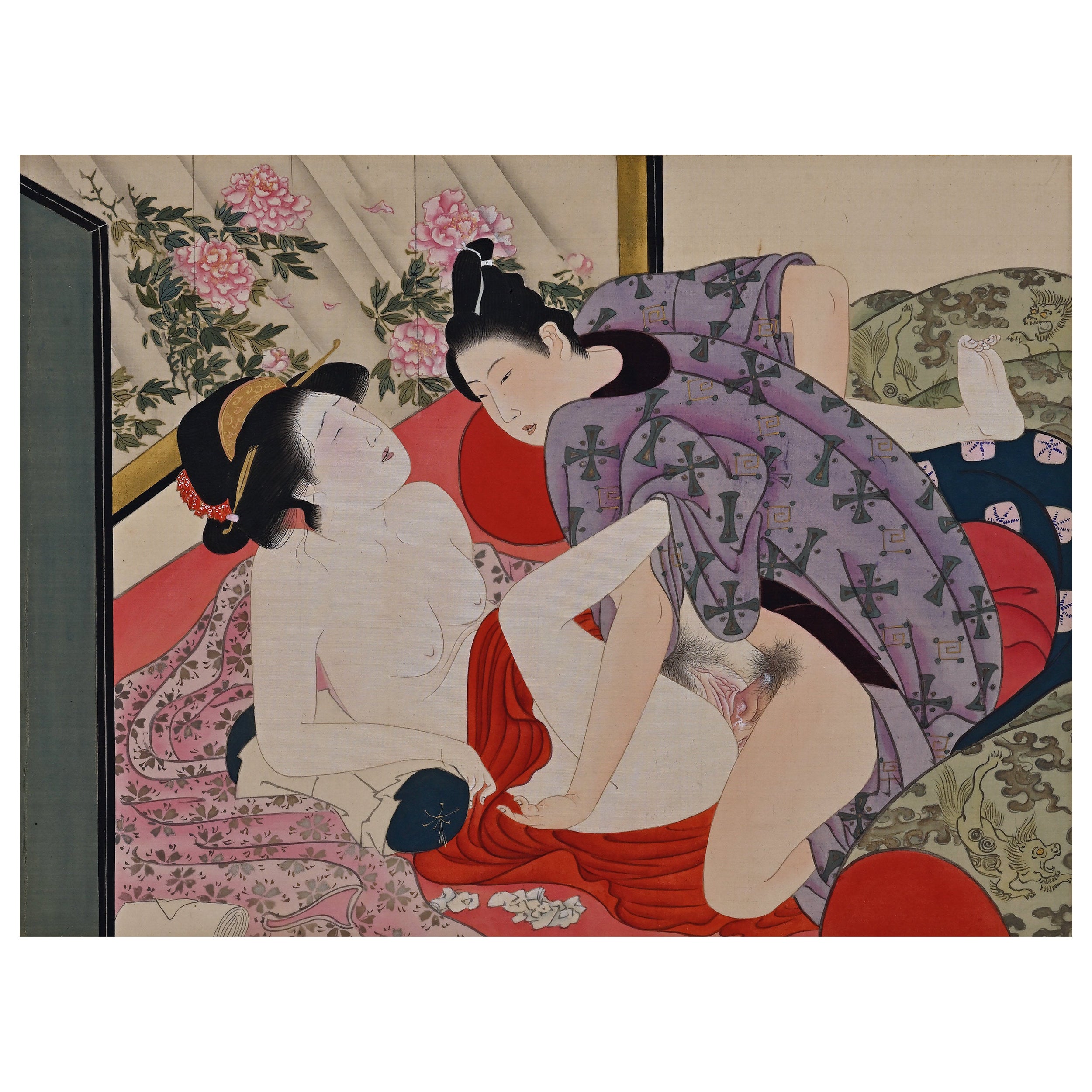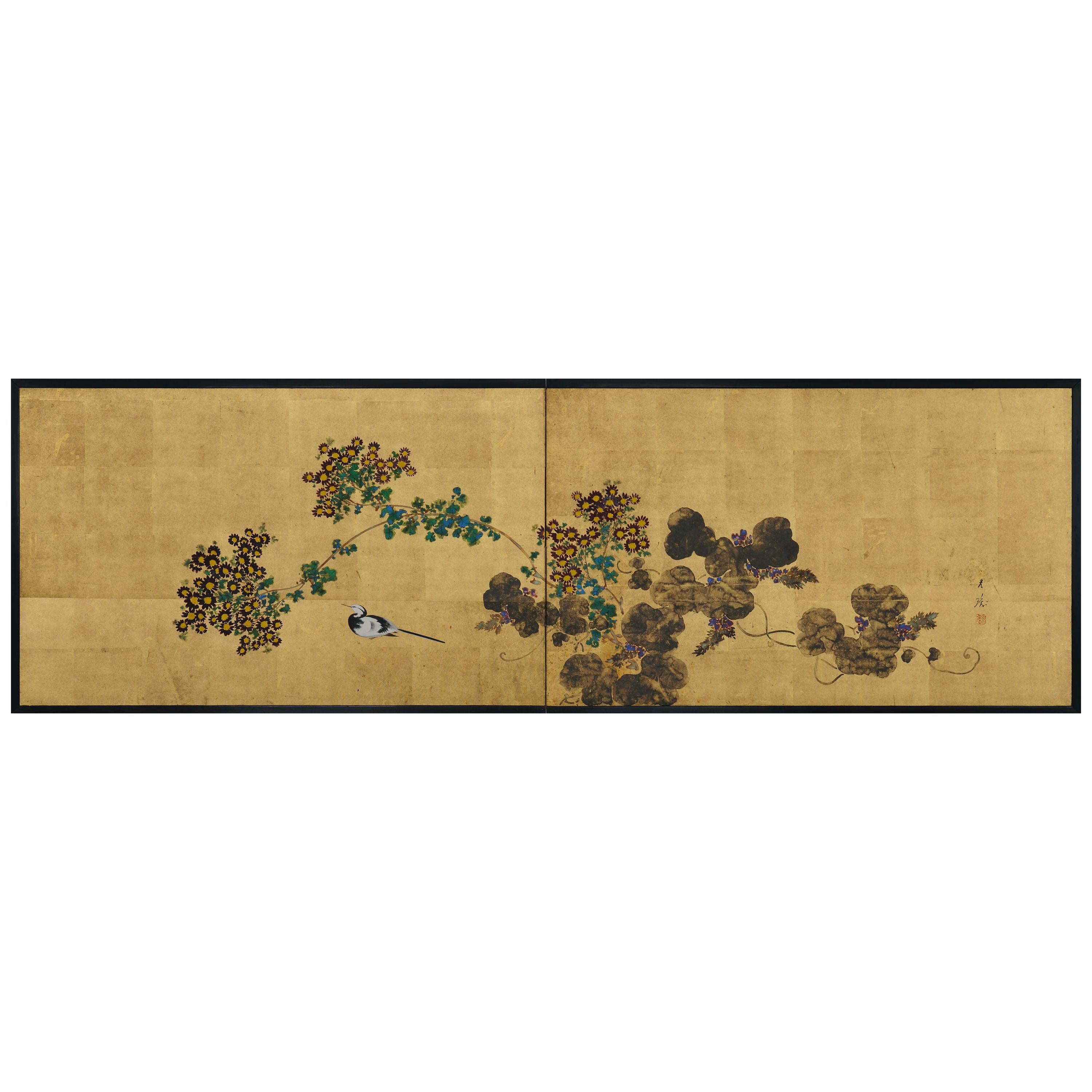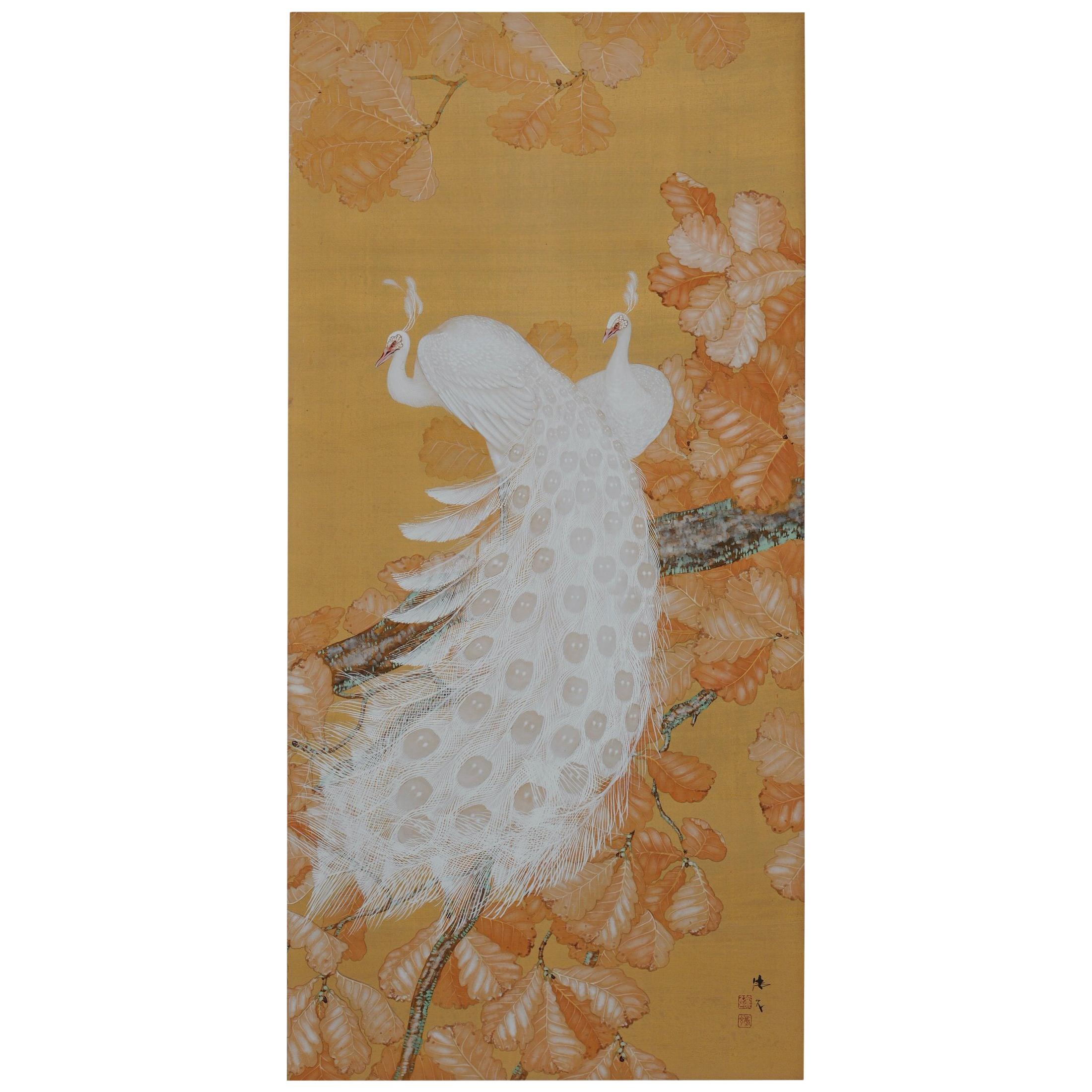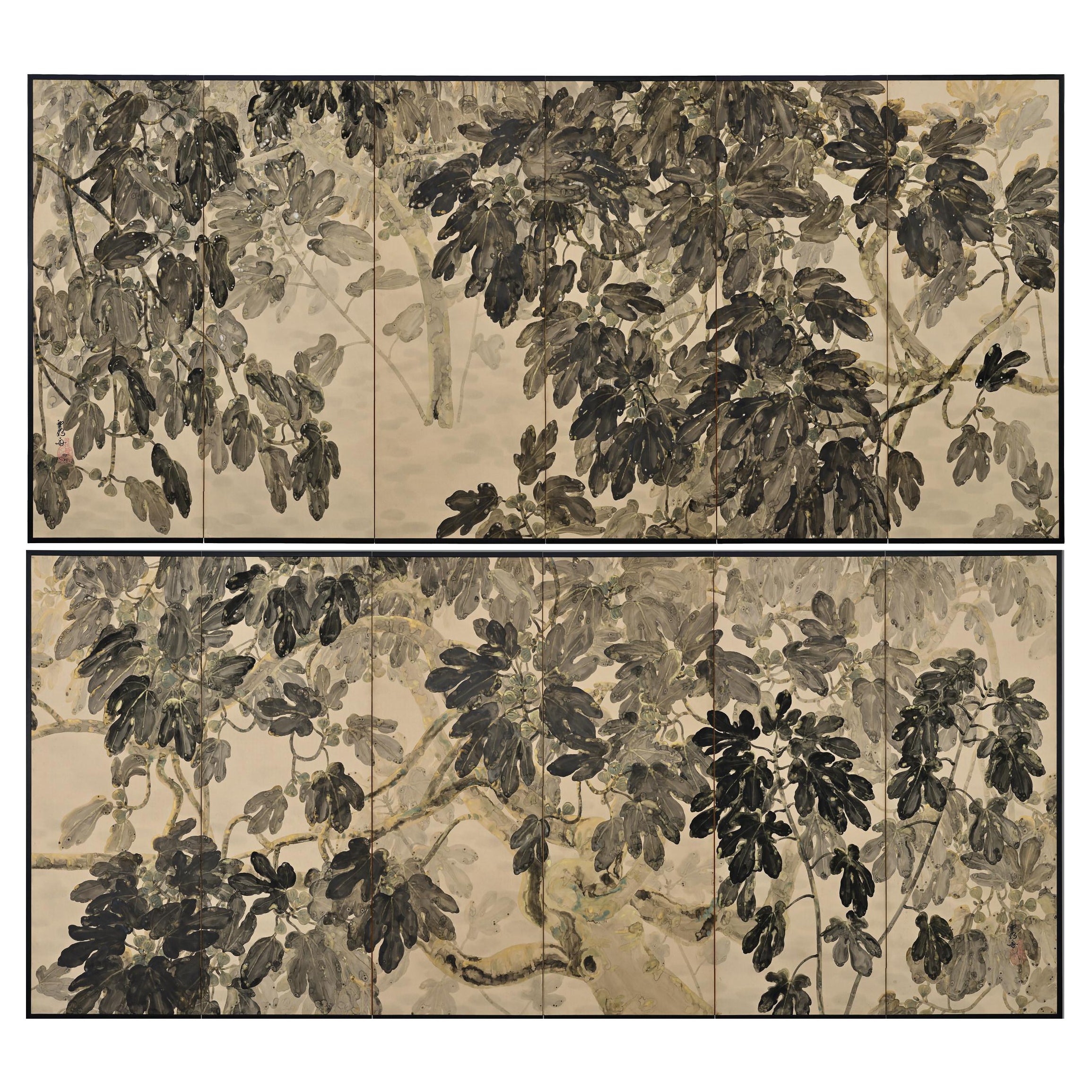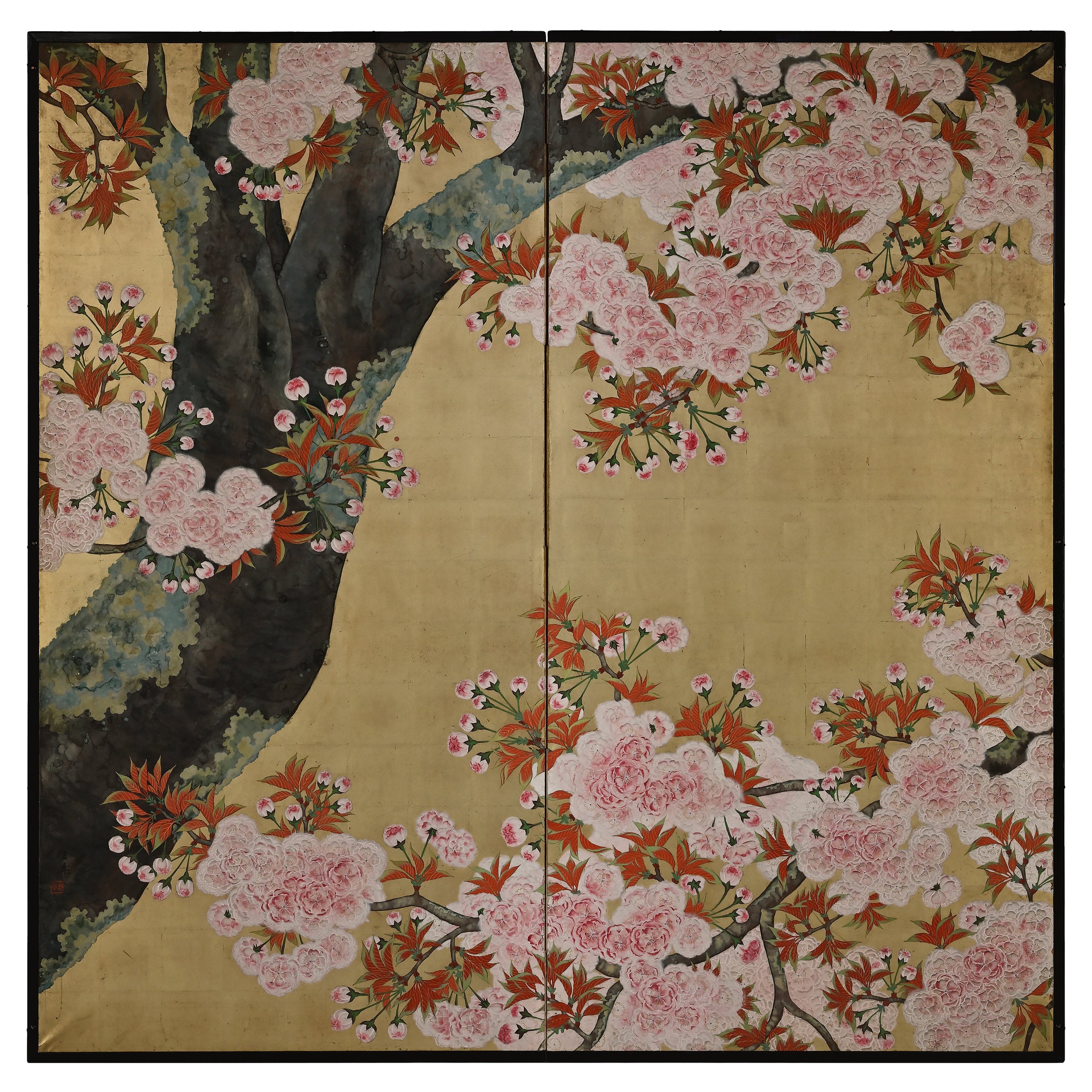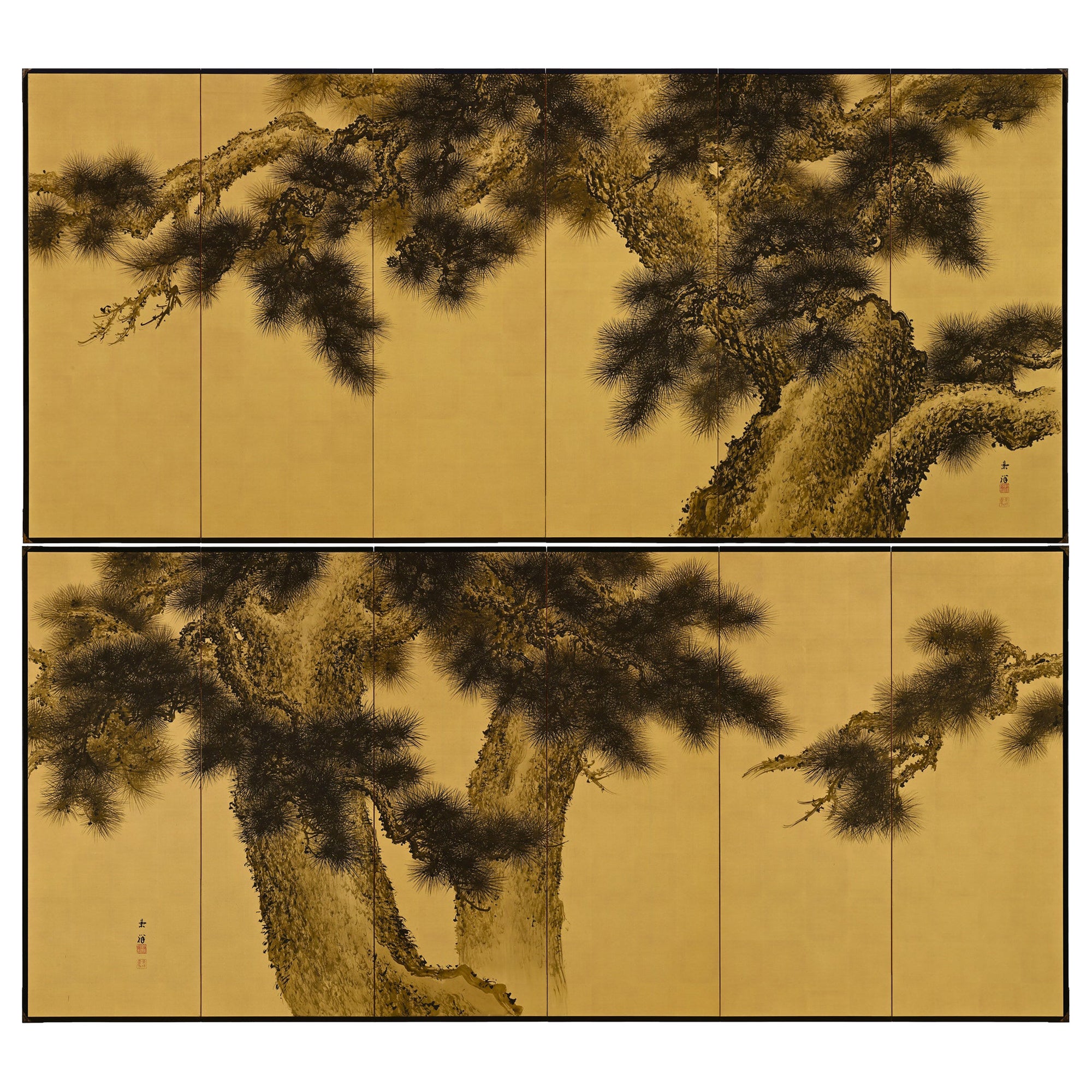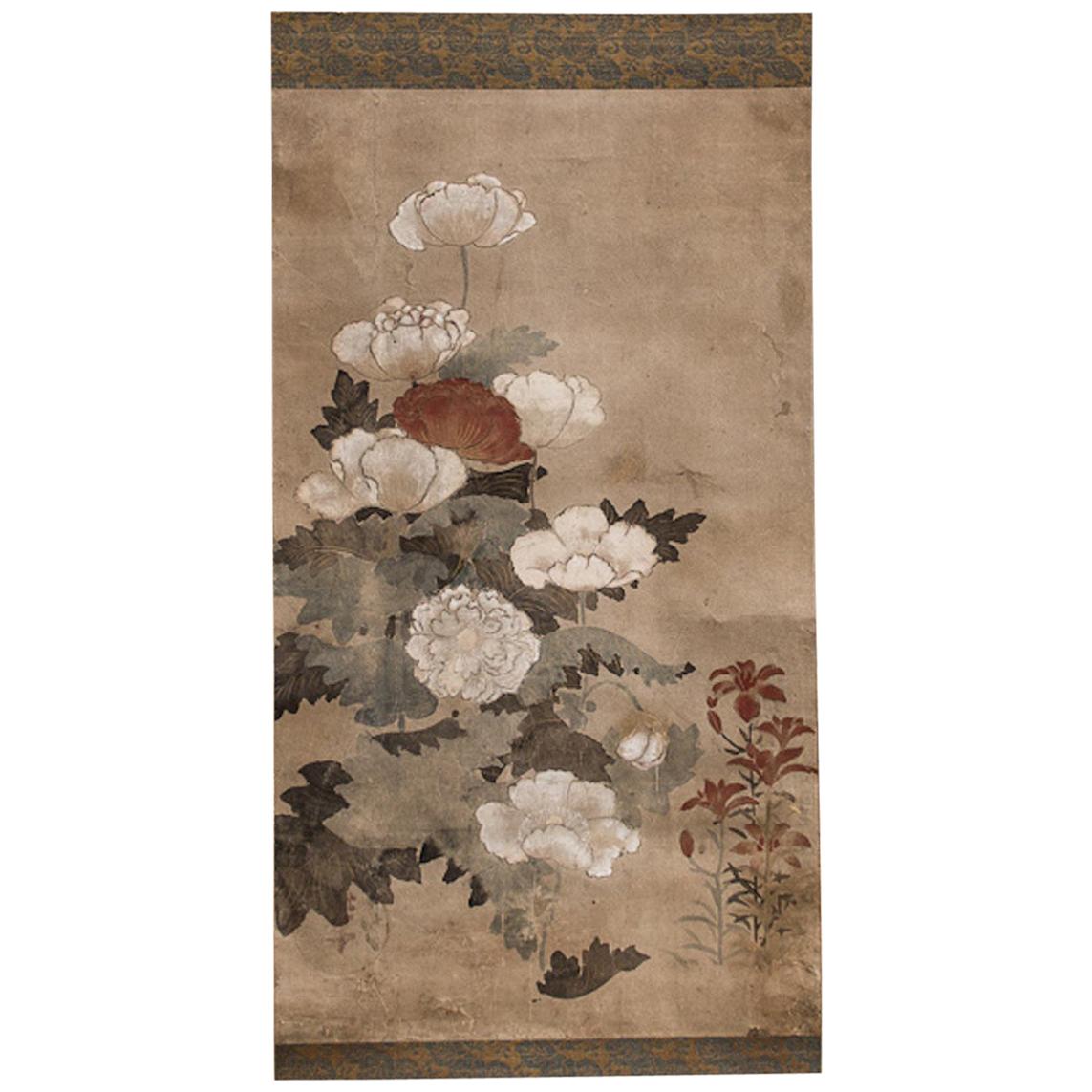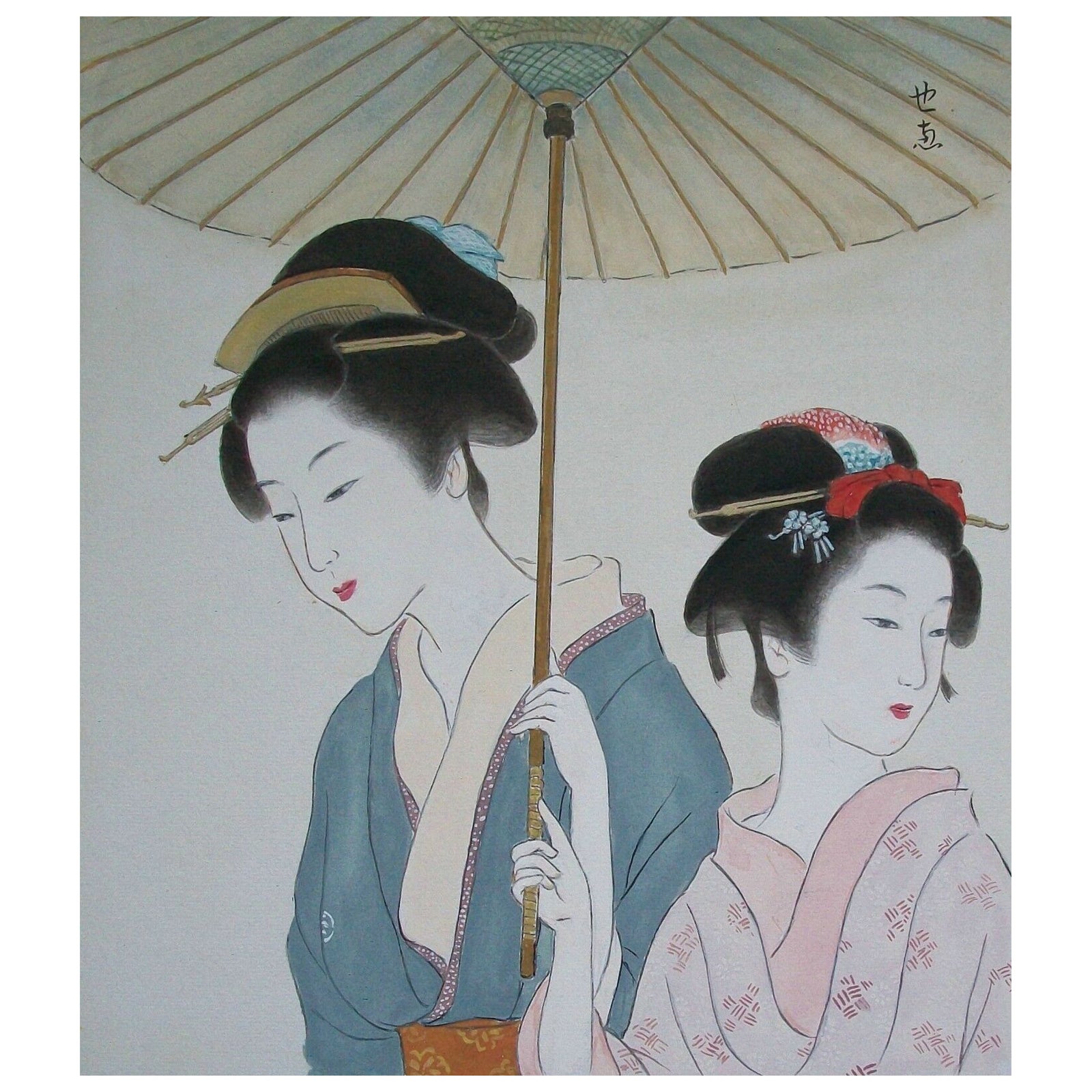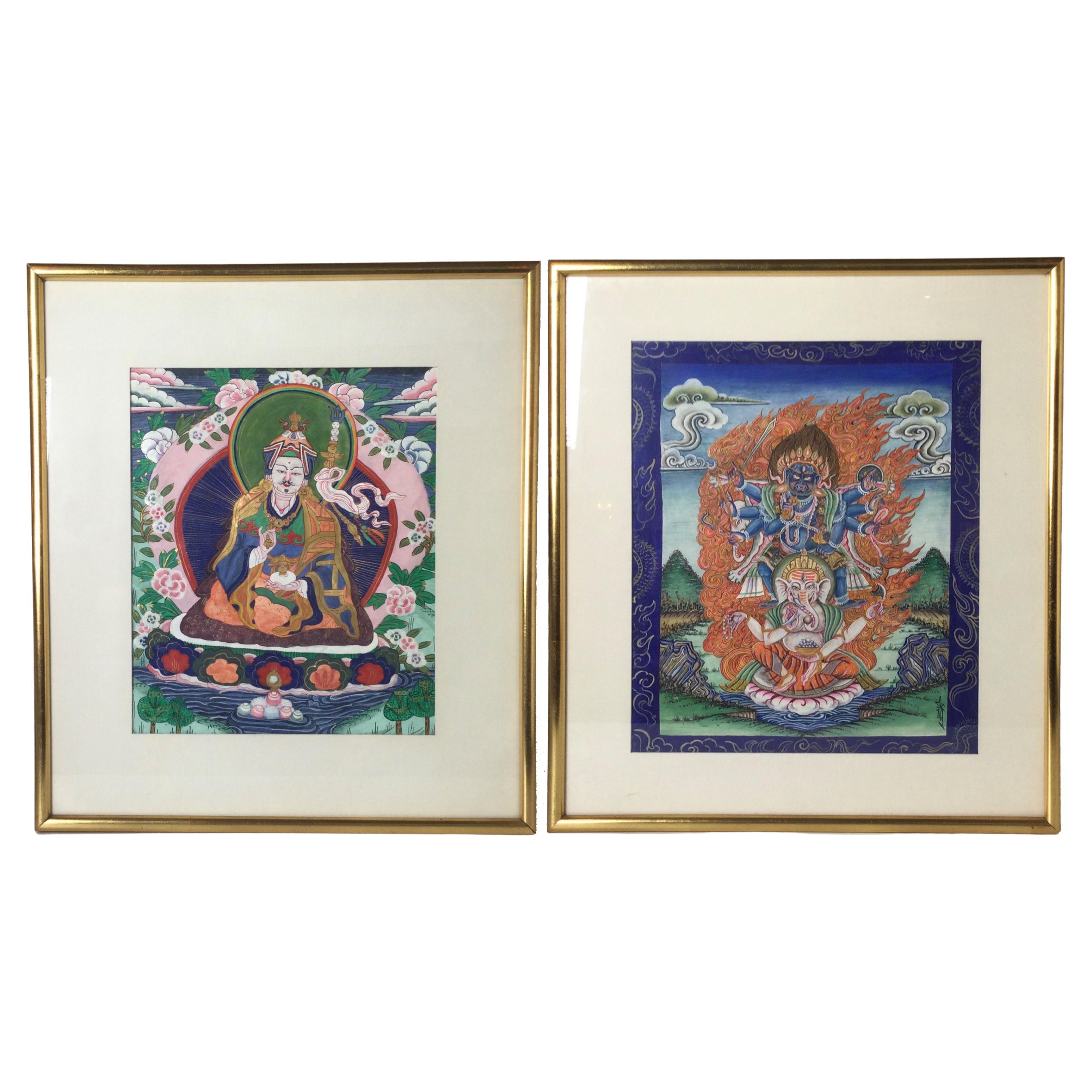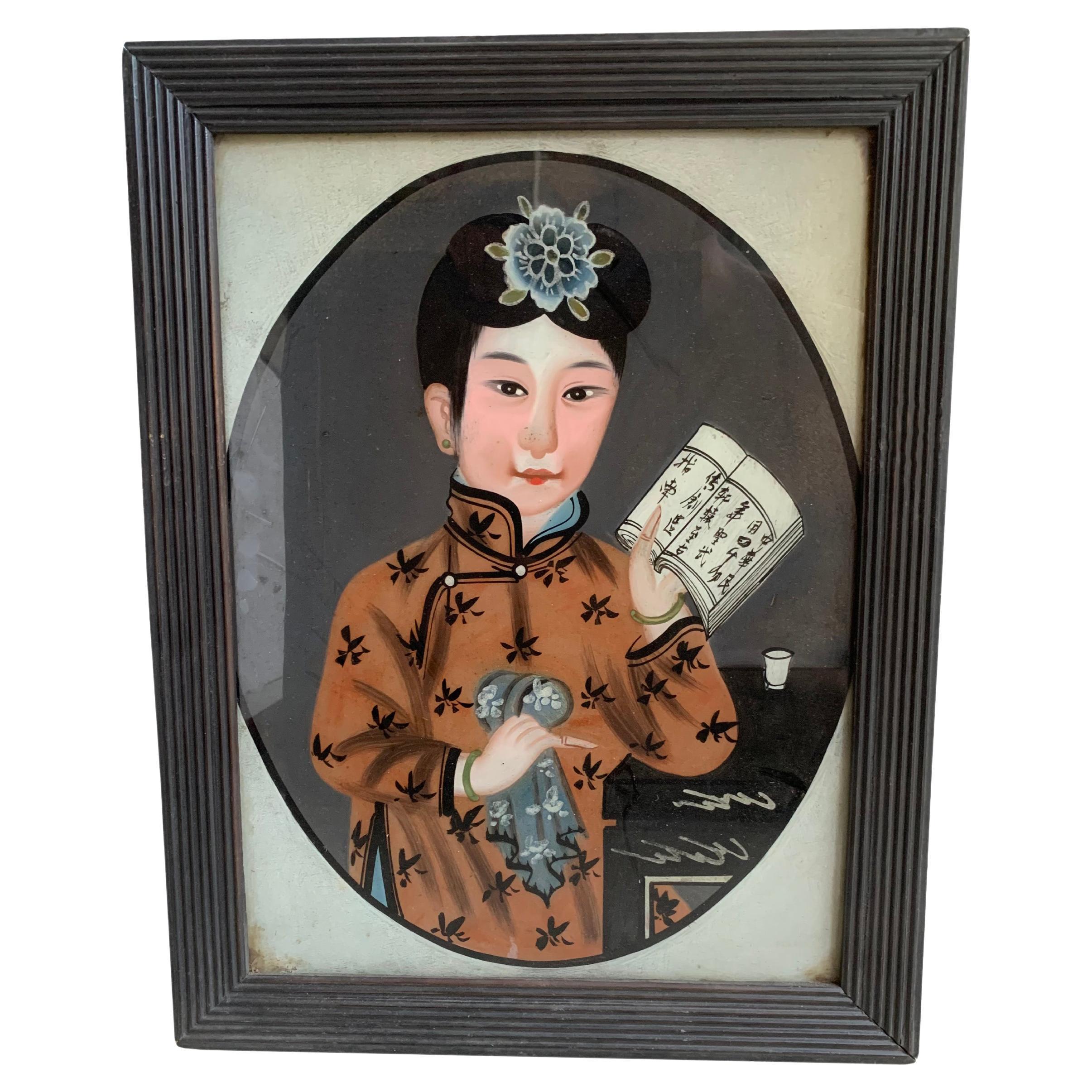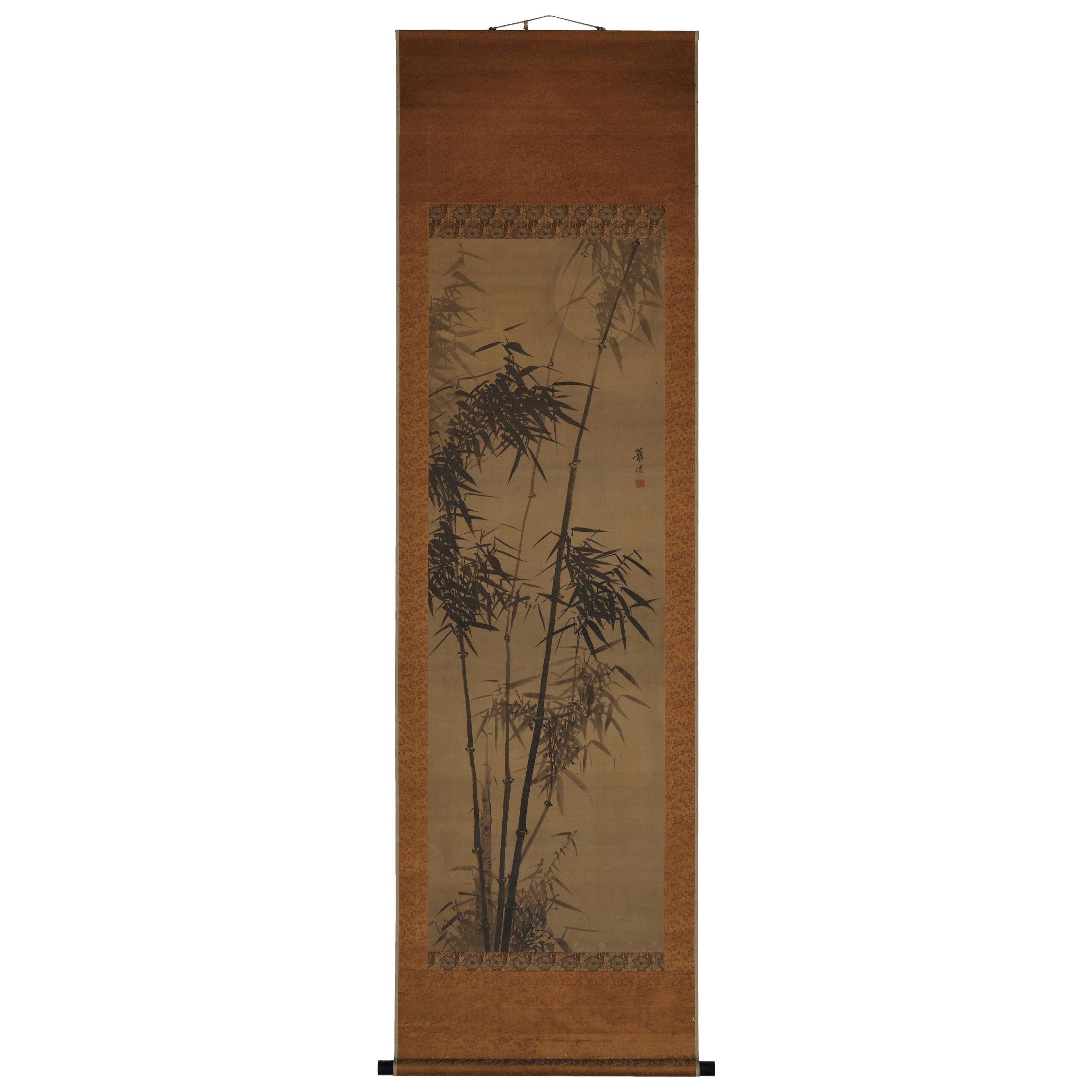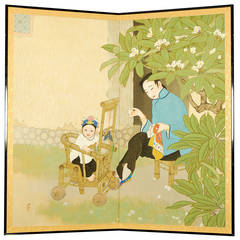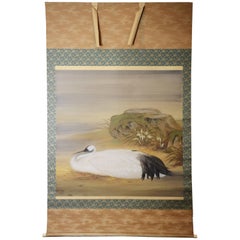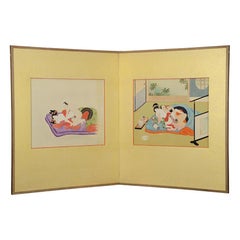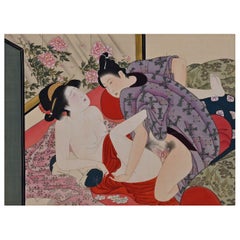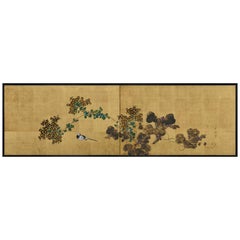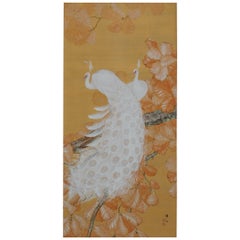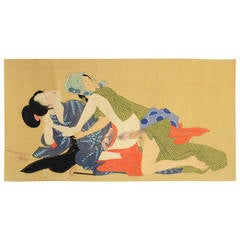
Vintage Japanese Erotic Shunga Scroll, Early 20th Century
View Similar Items
Want more images or videos?
Request additional images or videos from the seller
1 of 9
Vintage Japanese Erotic Shunga Scroll, Early 20th Century
About the Item
- Dimensions:Height: 11.82 in (30 cm)Width: 3.94 in (10 cm)Depth: 5.91 in (15 cm)
- Style:Taisho (Of the Period)
- Materials and Techniques:
- Place of Origin:
- Period:
- Date of Manufacture:Unknown
- Condition:
- Seller Location:Prahran, AU
- Reference Number:Seller: KS15001-Shunga Scroll1stDibs: LU125622617412
About the Seller
5.0
Vetted Seller
These experienced sellers undergo a comprehensive evaluation by our team of in-house experts.
Established in 1979
1stDibs seller since 2015
76 sales on 1stDibs
Typical response time: 1 to 2 days
More From This SellerView All
- Vintage Japanese Two-Panel Screen, Taisho Period, Early 20th CenturyLocated in Prahran, VictoriaJapanese two-panel screen, study of an Okinawan mother and child, Taisho period early 20th century, dating from the 1920's. Signed by Matsumura Baiso, (1884-1935). Baiso was a studen...Category
Early 20th Century Japanese Taisho Paintings and Screens
- Large Antique Japanese Scroll Depicting a Nesting Crane, Taisho PeriodLocated in Prahran, VictoriaLarge and exceptional Japanese hanging scroll with a realistically painted depiction of a nesting crane by Yoshifuji Yoshio, Taisho/Showa perio...Category
Early 20th Century Japanese Taisho Paintings and Screens
MaterialsPaper, Silk
- Japanese 2-Panel 'Shunga' Screen with Finely Painted Erotic Depictions of LoversLocated in Prahran, VictoriaA very finely painted two panel 'shunga' screen with scenes of naked erotic lovers in union. The scene on the left panel simply depicts the lovers in ...Category
Mid-20th Century Japanese Showa Paintings and Screens
MaterialsWood, Paper
- 18th Century Japanese Kano School Landscape ScreenLocated in Prahran, VictoriaJapanese Kano school screen with pine tree, camellias, cherry blossom and Chinese figures in the landscape, circa 18th century. Materials: Pigmen...Category
Antique 18th Century Japanese Paintings and Screens
MaterialsSilver Leaf
- Pair of Antique Japanese Paintings of Karashishi, Edo Period, 18th CenturyLocated in Prahran, VictoriaA rare pair of antique Japanese Karashishi paintings in a landscape of rocks and peony flowers on gold leaf ground in fine handmade frames, Edo period, early 18th century. The Karash...Category
Antique Early 18th Century Japanese Edo Paintings and Screens
MaterialsGold Leaf
- Pair of Antique Japanese Flower Paintings by Yanagisawa Kien, circa 18th CenturyBy Yanagisawa KienLocated in Prahran, VictoriaPair of antique Japanese Nagasaki School paintings by Yanagisawa Kien (1704-1758), depicting classical ikebana flower arrangements. Each painted on silk in mineral pigments and beari...Category
Antique Mid-18th Century Japanese Edo Paintings and Screens
MaterialsSilk
You May Also Like
- 19th Century Japanese Shunga Hand-Scroll, Katsukawa SchoolLocated in Kyoto, JPShunga Unknown artist Meiji era, circa 1880 Hand-scroll mounted with 12 paintings Ink, pigment and gofun on silk Dimensions: Each image measures H. 23.2 cm x W. 34.4 cm (9.15” x 13.5”) The hand-scroll measures H. 28 cm x W. 540 cm (11” x 212”) A set of 12 late 19th century Japanese Shunga paintings mounted as a hand-scroll. Two of the leaves bear the signature and seal ‘Setsuzan’, although we are unable to confirm the identity of the artist using this art name. 6 of the 12 images are taken almost directly from Katsukawa Shuncho’s late 18th century woodblock series, ‘Erotic Pictures...Category
Antique Late 19th Century Japanese Meiji Paintings and Screens
MaterialsSilk
- Japanese Screen, Early 20th Century Wagtail & Chrysanthemum by Ishizaki KoyoLocated in Kyoto, JPIshizaki Koyo (1884-1947) Wagtail & Chrysanthemum Early 20th century Folding screen in two-panels. Ink, pigments and gofun on gold leaf. Sign: Koyo Seal: Koyo This ...Category
Early 20th Century Japanese Taisho Paintings and Screens
MaterialsGold Leaf
- Early 20th Century Japanese Framed Painting, White Peacocks on Silk and GoldLocated in Kyoto, JPKasahara Seiken White peacocks, circa 1916 Framed painting. Ink, color and gofun on silk. A Taisho period Japanese nihonga painting depicting a pair of white peacocks re...Category
Early 20th Century Japanese Taisho Paintings and Screens
MaterialsGold Leaf
- Early 20th Century Japanese Screen Pair, Fig Trees by Hiroe Kashu 'B.1890'Located in Kyoto, JPFig Trees Hiroe Kashu (b.1890) Taisho era, circa 1920 Pair of six-fold Japanese screens Ink, malachite, gold and silver on paper Dimensions: Each Screen measures H...Category
Early 20th Century Asian Taisho Paintings and Screens
MaterialsGold, Silver
- Early 20th Century Pair of Japanese Folding Screens, Deer Under Maple TreesLocated in Kyoto, JPDeer under maples Late Taisho period, circa 1925-1930 Pair of two-panel screens. Ink and pigment on silk. Signature: Goho Seal: Goho A pair of two-fold Japanese silk screens...Category
Vintage 1920s Japanese Taisho Paintings and Screens
MaterialsWood, Paper, Silk
- Early 20th Century Japanese Cherry Blossom Screen by Kano SanrakukiLocated in Kyoto, JPCherry Blossoms Kano Sanrakuki (1898-1981) Showa period, circa 1930 2-panel Japanese Screen Color, gofun and gold leaf on paper Against a backdrop of gold-leafed ground, the lichen covered trunk and branches of the life-sized cherry blossom tree reach out and beyond the confines of the pictorial surface. The overall composition has a feeling of flatness which draws emphasis to the surface and the three-dimensionality of the cherry blossoms. Painstakingly built-up layers of thickly applied shell-white gofun detail the voluminous blossoms and cover large areas of this tour-de-force of Japanese Nihonga painting. By simplifying the background, minimizing the number of colors and depicting the blossoms with such heavy relief, the artist has emphasized the stunning presence of the cherry tree. The type of tree depicted is the Yae-Zakura; a double-layered type of cherry blossom famed for its beauty and strength. When we think of Japanese cherry blossoms, the first thing that comes to mind is Somei Yoshino variety, which has a single flower with five almost white petals. This type is fragile and easily blown away by strong wind or rain. Most of the double-flowered cherry blossoms begin to bloom when the Somei-Yoshino falls, and the flowering period lasts longer than that of the Somei-Yoshino. Kano Sanrakuki originally studied painting at the Kyoto City Arts and Crafts School under the tutelage of Yamamoto Shunkyo...Category
Early 20th Century Japanese Showa Paintings and Screens
MaterialsGold Leaf
Recently Viewed
View AllMore Ways To Browse
Japanese Scrolls
Taisho Scroll
Antique Shunga
Asian Erotic Art
Asian Erotic Paintings
Antique Japanese Shunga
Vintage Silk Painting Japanese
Vintage Asian Silk Painting
Vintage Japanese Painting On Silk
Asian Wood Screen Panels
Chinese Panel Screen
China Panel Screen
Chinese Screen Panel
Japanese Wood Screen
Chinese Wood Screen
Silk Panel Screen
Japanese Two Panel
Japan Clouds
